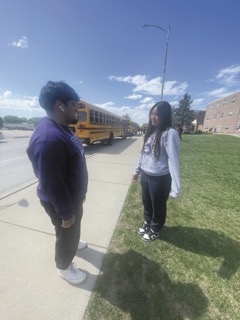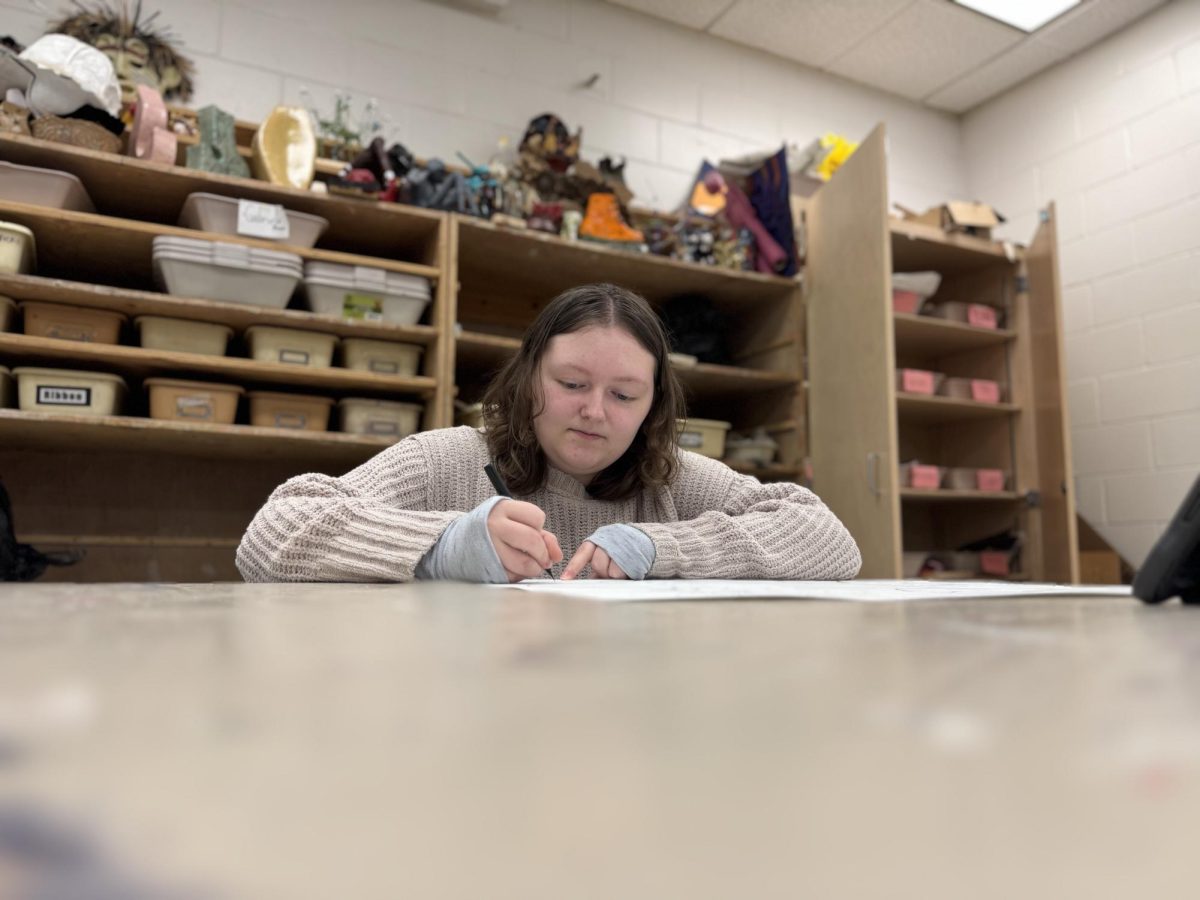
It is kindergarten, a time to learn about the world and make friends, but there is a catch: no one is understandable. However, no one could understand young Isa Jaskot either. For her, this was a moment of realization that her language was different.
Immigration is a big part of the United States and provides a certain uniqueness as far as integration of culture goes. People from all over the world travel to the United States in hopes of attaining a better future. Many migrants speak different languages before coming to America, which can be hard for other people to accept but, with more diversity greater understanding is more necessary for a cohesive and inclusive society.
“They [other students] would make fun of my culture, what I ate, how I talked to my mom, and the thing I was most self-conscious of: my accent,” Jaskot said. “It was that year that I finally decided to turn my back on my culture.”
The need to understand and communicate with people from different parts of the world is becoming more vital with the rapid growth of a global community. Language not only allows one to understand another person who has a different way of speaking, but also creates connection and understanding of culture that otherwise would not be possible.
“You know, for students who choose to travel internationally or studying internationally, obviously you now have that opportunity, speaking the language,” Latin instructor Elizabath Rolling said. “But even students who never plan on leaving the United States, learning different cultures, and especially learning cultures that are vastly different than our own, allows students to have a greater sense of empathy for the world and understand their place kind of in the bigger scope of things, as opposed to just how their little environment is affected.”
According to the Atlantic Press, “bilingualism is on the rise in many parts of the world.” A 2016 European Commission survey revealed more than eighty percent of European Union citizens speak at least one foreign language. The United States is not the only country that values bilingualism; it is becoming a global standard.
“We have a very global society where you aren’t isolated, any one country isn’t, and so it’s important to understand how they all kind of fit together,” Rolling said.
Culture heavily influences who people become because it is an essential part of life for many. Culture shapes what people grow accustomed to: art, food, music, values, traditions, and institutions. It can also change the perspectives of people who participate within that particular culture or cultures. Language is another means of understanding and communicating within a culture.
“Right after second grade, I moved to Germany, and from then to about sixth grade, I saw absolutely nothing wrong with pretending to have two white, English speaking parents,” Jaskot said. “It wasn’t until I had another Latina friend who proudly represented her culture instead of hiding it like I did, that I finally realized that it was never anything to be ashamed of all along.”
Learning another language can also foster friendships with a variety of different people. Because language gives people a deeper understanding and empathy for other cultures it strengthens interpersonal communication and connections with people.
“For example, right now I am studying English and when I hang out with my friends, I am learning from my friends,” Sara Nishitani said. “So we can connect. It’s kind of, for me, learning English is part of how to communicate with people.”
Advocating for the importance of language could create a better understanding of different cultures, and as a result, a greater understanding of people. Communication is a major factor of the human experience, and as people, it connects everyone.
“Being bilingual doesn’t just double the amount of words you know, it doubles the amount of connections you’ll make with others,” Jaskot said.





![Smile! On April 8, 2025 at Bellevue East High School, junior Kasen Warner signed with MH Equipment. MH equipment is going to pay for their two year degrees in skilled and technical trade areas and pay for a full set of tools. “This opportunity helps me because I'm gonna be shadowing people and learning more about how to do it [do things in his trade],” Warner said.](https://beaststudentmedia.org/wp-content/uploads/2025/05/IMG_4408-858x1200.jpg)
![Aim and Fire! On March 29, senior Christopher Lively prepares to shoot . The competition was held at the Bellevue Rod and Gun club.] “[It was] very windy and that caused me to do very badly. There were a few good sharpshooters and people who shot 15 out of 100,” Lively said.](https://beaststudentmedia.org/wp-content/uploads/2025/04/Resized_20250329_121914_1743269425901-1200x900.jpeg)